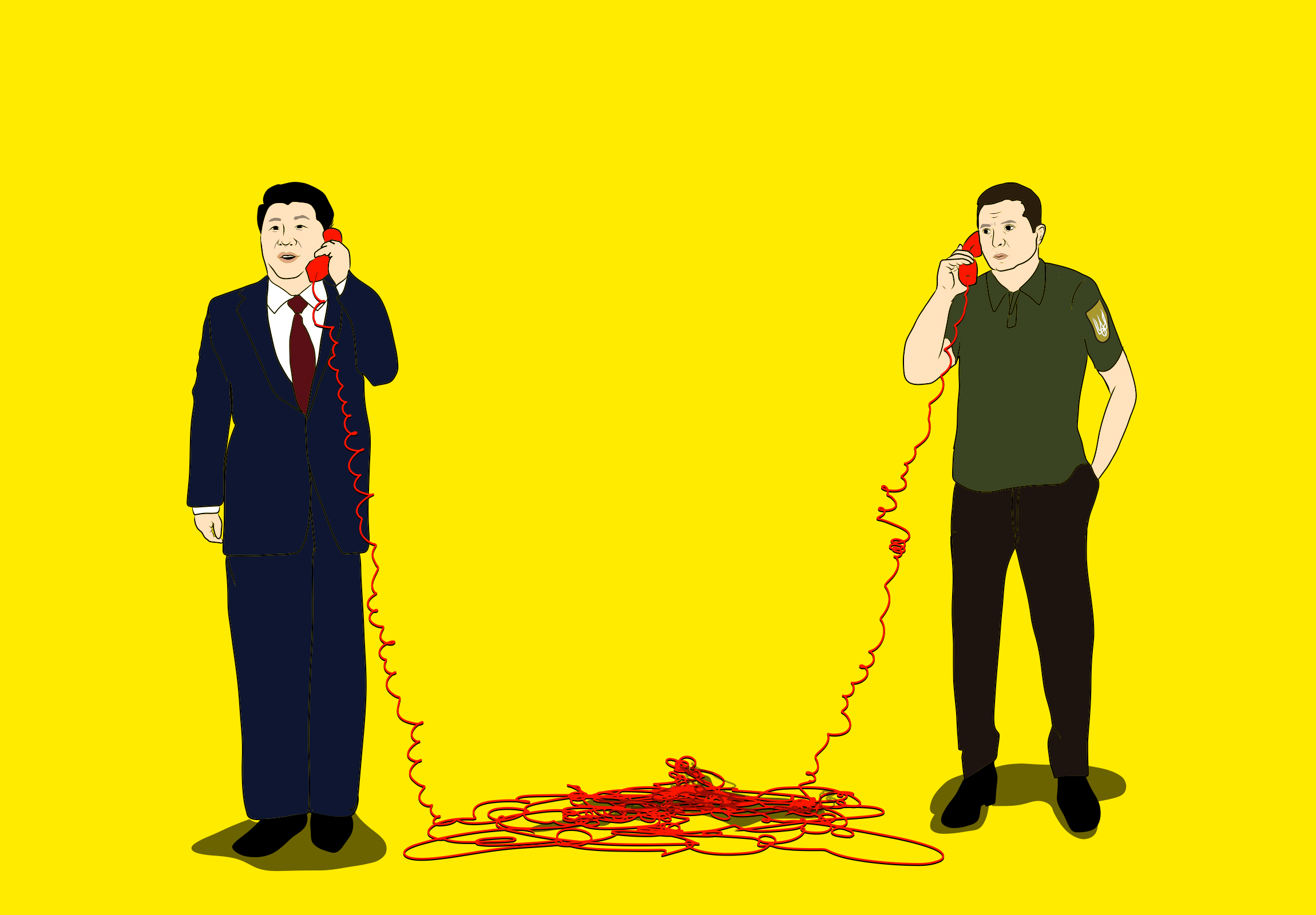China’s Xi holds first public phone call with Ukraine’s Zelenskyy
After months of speculation about a call between Xi Jinping and Volodymyr Zelenskyy, the two leaders finally talked today. The conversation was moral support for Ukraine, but Xi gave no indication that China’s tacit support for Putin would change.

China’s President Xí Jìnpíng 习近平 had a phone call with his Ukrainian counterpart Volodymyr Zelenskyy today. While Zelenskyy has long reached out to Beijing in hopes of speaking with Xi, the phone call marks the first time the Chinese leader has publicly reached out to Kyiv since the Russian invasion of Ukraine.
“I had a long and meaningful phone call with [Chinese] President Xi Jinping,” Zelenskyy said on Twitter. “I believe that this call, as well as the appointment of Ukraine’s ambassador to China, will give a powerful impetus to the development of our bilateral relations.”
Xi said that “dialogue and negotiations are the only viable way out for the Ukraine crisis,” according to a brief statement from Chinese state media. He also stated that “no one wins a nuclear war,” without directly mentioning Russia’s involvement in the conflict in Ukraine.
“No matter how the international situation changes, China is willing to work with the country to push forward mutually beneficial cooperation between the two countries,” Chinese state media quoted Xi as saying.
A Chinese-language readout of the call also quoted Xi as saying “As a permanent member of the UN Security Council and a responsible big country, we will neither watch the fire from across the river nor pour oil on the fire, nor will we underhandedly take advantage of the opportunity for our own interest. What China is doing is open and aboveboard.”
China news, weekly.
Sign up for The China Project’s weekly newsletter, our free roundup of the most important China stories.
China will also send a special representative of the Chinese government on Eurasian affairs to visit Ukraine to discuss a resolution to the crisis. No further details have yet been released by the Chinese Foreign Ministry.
Beijing’s not-so-subtle alignment with Russia
The last time Xi spoke with Zelenskyy was in January 2022, less than two months before Putin invaded Ukraine. They congratulated each other on 30 years of diplomatic ties between their two countries, hailing their “deepening political mutual trust” and “sound and stable” development.
Until now, Xi has only met with Russian President Vladimir Putin since Moscow’s invasion more than a year ago on February 24, 2022. While China has emphasized its neutral position and has urged for a peaceful resolution to the conflict, Beijing has taken care not to refer to it as a “war” and has refused to condemn Moscow for its invasion.
Many Western countries have condemned Beijing’s stance as an alignment with Moscow. Chinese state-broadcaster CCTV, the most influential current affairs information operation in China, has touted the Kremlin’s narrative on the war from the very start. And while Beijing has largely abided by Western sanctions, it has also continued to support an isolated Moscow by purchasing steeply discounted Russian energy exports and supplies of key technologies like semiconductors.
China has repeatedly denied the U.S.’s accusations that it would support Russia through military means. While no proof of any such transactions has emerged as of yet, sanctioned U.S. and European components have continued to make their way into Russia through third-party countries, such as mainland China and Hong Kong. The U.S. and the U.K. have tried to close such loopholes by imposing new targeted sanctions on 120 entities and individuals supporting Russia’s war on Ukraine, “including facilitators of sanctions evasion.”






